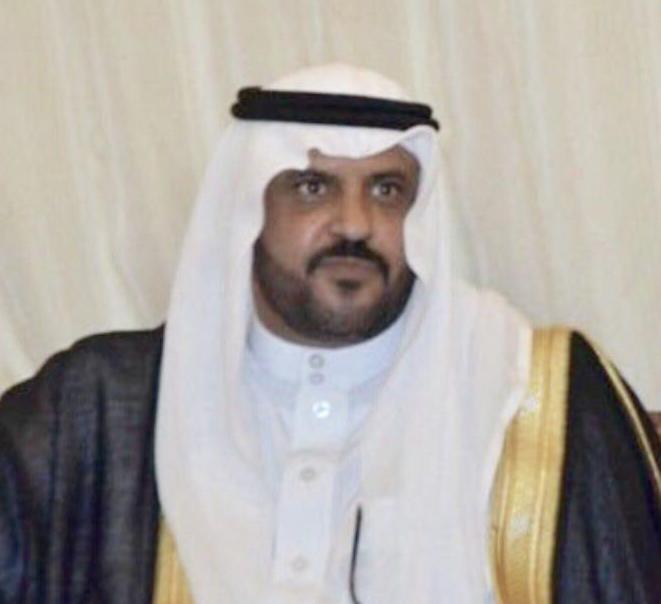Saudi Arabia: Long Prison Terms for Rights Activists
| Publisher | Human Rights Watch |
| Publication Date | 28 January 2018 |
| Cite as | Human Rights Watch, Saudi Arabia: Long Prison Terms for Rights Activists, 28 January 2018, available at: https://www.refworld.org/docid/5a8eb0eca.html [accessed 23 May 2023] |
| Disclaimer | This is not a UNHCR publication. UNHCR is not responsible for, nor does it necessarily endorse, its content. Any views expressed are solely those of the author or publisher and do not necessarily reflect those of UNHCR, the United Nations or its Member States. |
Rights-Group Founder, Deported by Qatar, Was Sent to Trial
January 28, 2018 12:01AM EST
 Mohammad al-Oteibi is facing criminal charges along with Abdullah al-Attawi for forming a short-lived human rights organization in 2013. © 2016 Private
Mohammad al-Oteibi is facing criminal charges along with Abdullah al-Attawi for forming a short-lived human rights organization in 2013. © 2016 Private
The charges against Mohammad al-Oteibi, sentenced to 14 years in prison, and Abdullah al-Attawi, sentenced to 7 years, included "forming an unlicensed organization" and other vague charges relating to a short-lived human rights organization they set up in 2013. None of the alleged "crimes" listed in the charge sheet resemble recognizable criminal behavior, and none of them took place after October 2013.
"Mohammad bin Salman's reputation is tarnished by his justice system's relentless campaign against government critics and human rights activists," said Sarah Leah Whitson, Middle East director at Human Rights Watch. "Saudi Arabia should never have jailed al-Oteibi and al-Attawi on spurious charges, and their cases should be raised every time the Saudi government voices their plainly inadequate commitment to reform."
Al-Oteibi and al-Attawi formed the Union for Human Rights along with two others in April 2013, but they were unable to obtain a license for the group because Saudi Arabia generally did not allow independent non-charity nongovernmental organizations at that time. Al-Oteibi fled to Qatar in March 2017, seeking protection from Qatari authorities, but Qatar deported him back to Saudi Arabia in May. The deportation violated customary international law's prohibition on refoulement – that is, not to forcibly return anyone to a place where they would face a real risk of persecution, torture or other ill-treatment, or a threat to life.
Saudi human rights activists with direct knowledge of the case confirmed the convictions and sentences. Al-Oteibi and al-Attawi can appeal within 30 days.
Less than a month after the Union for Human Rights was formed, and after it issued several statements on social media, members were summoned for investigation. All of the founders promised to close the organization.
Nevertheless, in late April 2013, the group's founders applied for registration with the Social Affairs Ministry, since reorganized as the Labor and Social Development Ministry. The ministry rejected the application in May.
In the rejection letter, which Human Rights Watch reviewed, the director general of charitable associations and institutions wrote that, "...in studying the application it became clear that it is not in line with the regulation on charitable foundations and associations ... we advise you to await the issuance of the law on civil associations and institutions, which provides for the establishment of civil associations in the area of human rights." Authorities issued the associations law in November 2015.
Authorities summoned al-Oteibi and al-Attawi again in March 2014, and both pledged to stop issuing statements and reports and not to participate in TV interviews.
According to the charge sheet, al-Oteibi and al-Attawi faced vague charges including for "their participation in forming an association and announcing it before acquiring the necessary license," and "their participation in drafting, issuing, and signing a number of statements … over internet networks that include offending the reputation of the kingdom." Al-Oteibi also was charged with "making international human rights organizations hostile to the kingdom by publishing on a social media site false reports about the kingdom..."
Though all the founders signed the pledge to halt all human rights activism, the charge sheet states that after monitoring his compliance with the pledge, "it became clear that [Mohammad al-Oteibi] continued with his previous path and a number of his violations of it were documented…" The "violations" the charge lays out, however, refer only to activities that supposedly occurred prior to the pledge, including "meeting members of and sympathizers with dissolved [Saudi Association on Civil and Political Rights]. The last meeting was on September 14, 2013."
Since 2014, Saudi authorities have tried a series of peaceful dissidents in the Specialized Criminal Court, Saudi Arabia's terrorism tribunal.
Authorities have prosecuted nearly all activists associated with the Saudi Civil and Political Rights Association (ACPRA), one of Saudi Arabia's first civic organizations, which called for broad political reform in interpretations of Islamic law. A Saudi court formally dissolved and banned the group in March 2013. The members faced similar vague charges, including disparaging and insulting judicial authorities, inciting public opinion, insulting religious leaders, participating in setting up an unlicensed organization, and violating the cybercrime law.
Saudi activists and dissidents currently serving long prison terms based solely on their peaceful activism include Waleed Abu al-Khair, Abdulaziz al-Shubaily, Mohammed al-Qahtani, Abdullah al-Hamid, Fadhil al-Manasif, Sulaiman al-Rashoodi, Abdulkareem al-Khodr, Fowzan al-Harbi, Raif Badawi, Saleh al-Ashwan, Abdulrahman al-Hamid, Zuhair Kutbi, Alaa Brinji, and Nadhir al-Majed. The activists Issa al-Nukheifi and Essam Koshak are currently on trial.
"Outlandish sentences against peaceful activists and dissidents demonstrate Saudi Arabia's complete intolerance toward citizens who speak out for human rights and reform," Whitson said.
Link to original story on HRW website

